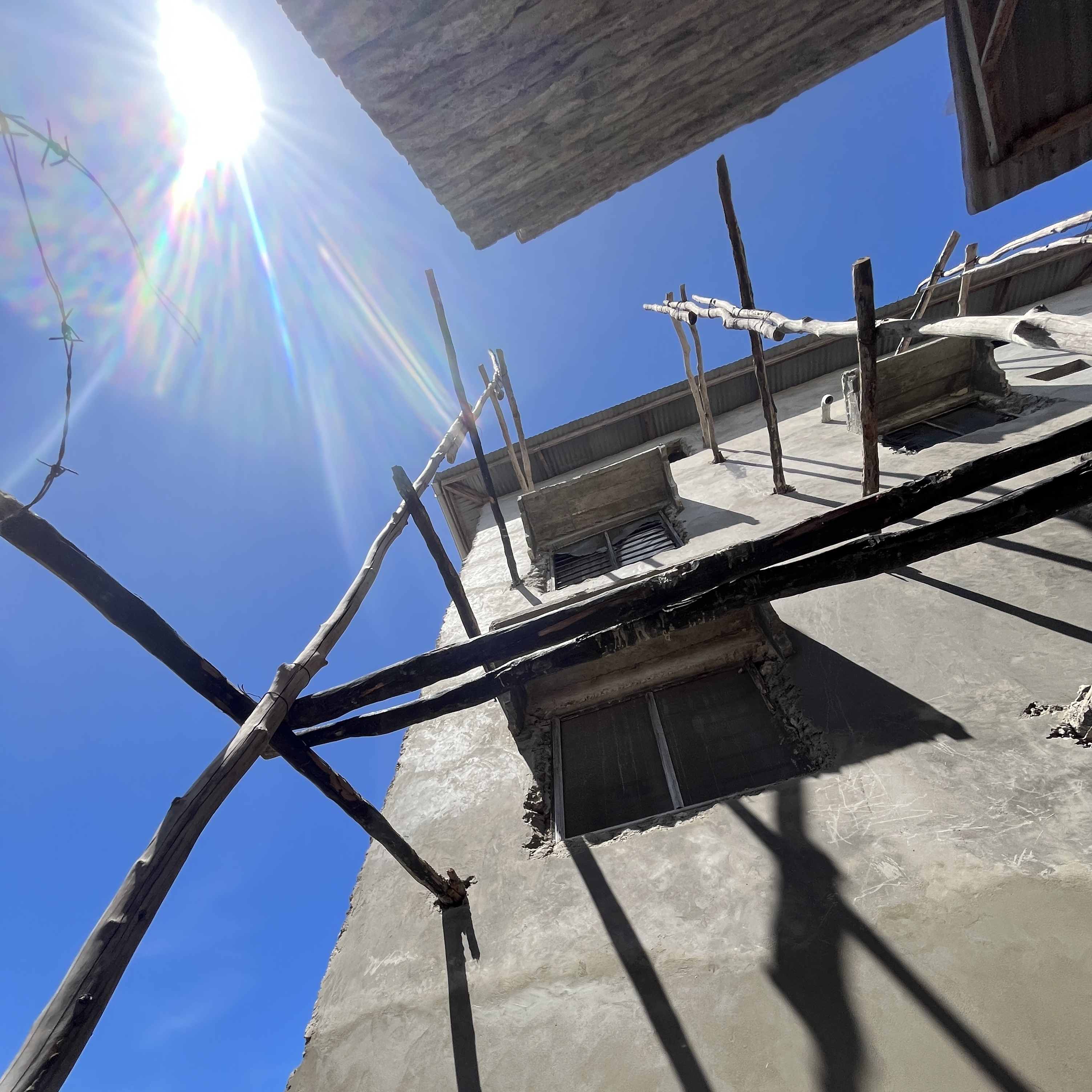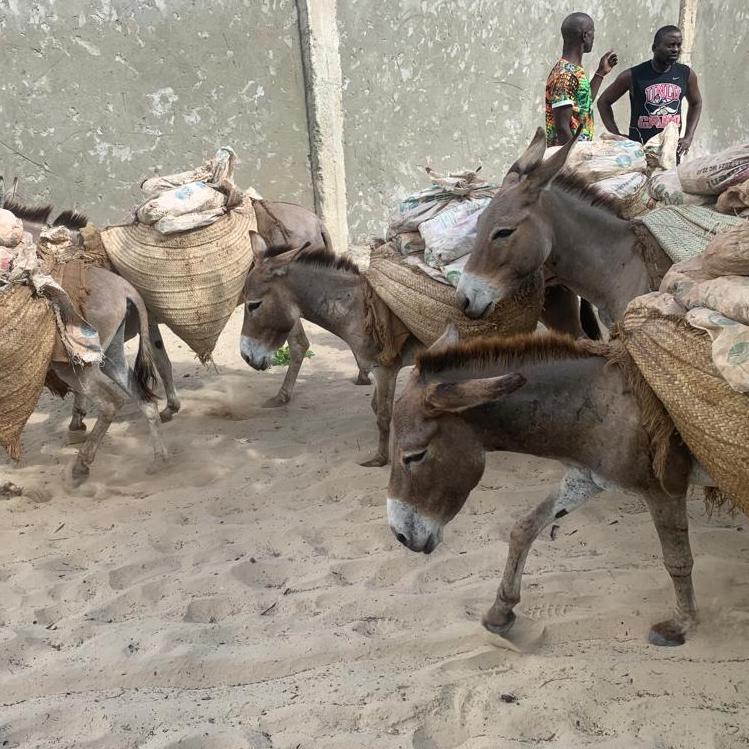Mama na Bahari
“Mama na Bahari” investigates the transformative role of women in Lamu’s fishing industry, particularly through their involvement in projects like sustainable octopus closures.
It asks, how do social identities and the community roles of women in Lamu evolve through their engagement in the fishing industry? How do gender dynamics and cultural practices influence women's roles and participation in environmental conservation efforts in Lamu, Kenya? By examining these initiatives and women’s activism, our research highlights how women’s participation is reshaping community structures, redefining, and challenging traditional roles. These sustainable practices not only enhance environmental conservation but also elevate women’s standing within the community, contesting long-held gender norms.
![]()
The research underscores the pivotal contributions of women in fostering economic adaptability and environmental stewardship in Lamu. Through these initiatives, women become agents of change, reshaping local perceptions of gender roles and actively contributing to Lamu’s socio-economic landscape.
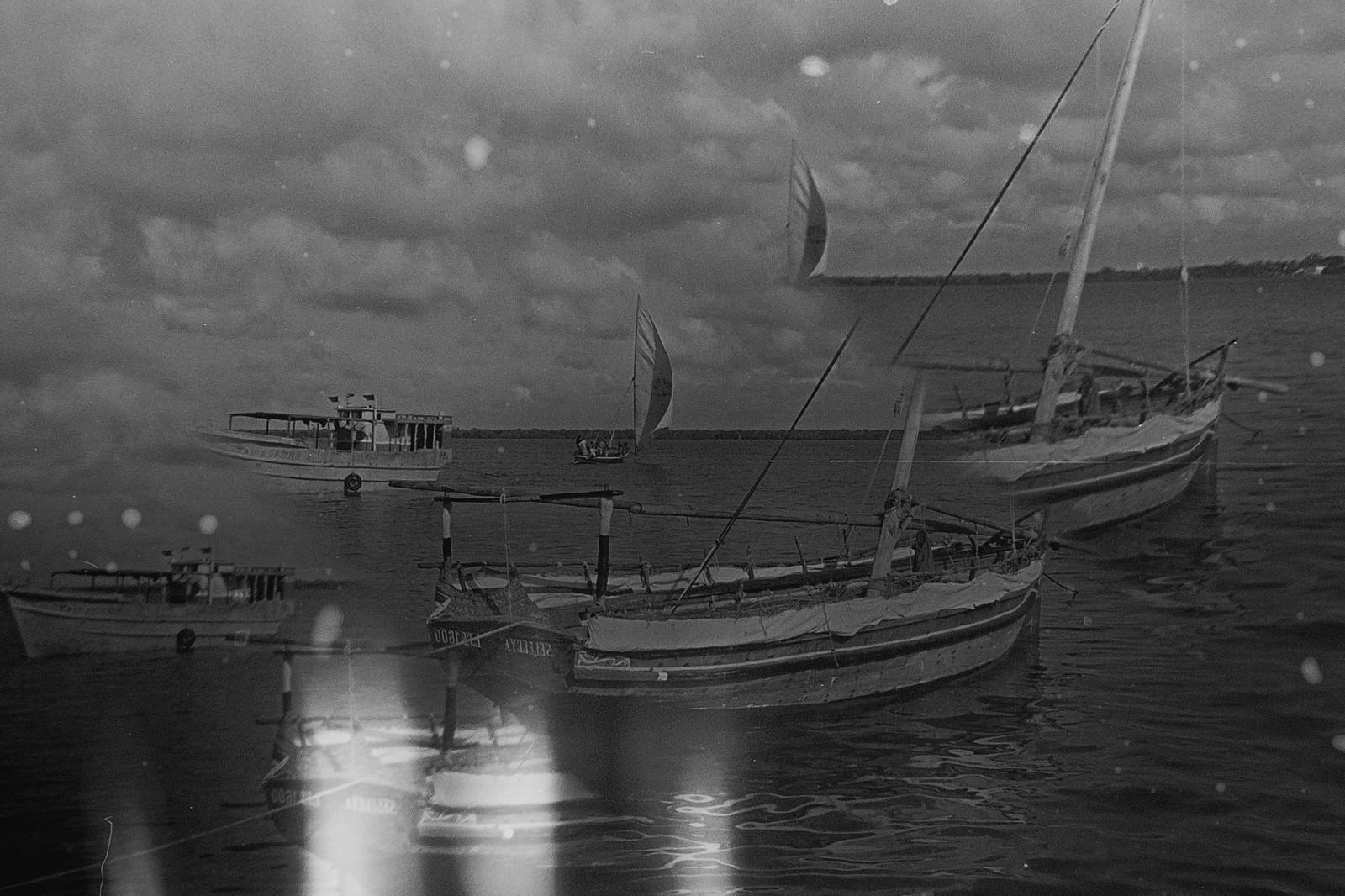
The research underscores the pivotal contributions of women in fostering economic adaptability and environmental stewardship in Lamu. Through these initiatives, women become agents of change, reshaping local perceptions of gender roles and actively contributing to Lamu’s socio-economic landscape.
This project offers a comprehensive view of how women are reimagining their place within the fishing industry, interweaving the intersections of gender, economy, and environmental sustainability to build a more inclusive and empowered future.

Projects
Introduction
This project investigates the intersection of Islamic feminism, decolonial feminism, and environmental justice in Lamu, Kenya, with a focus on women’s roles in environmental conservation and social justice within the fishing industry.
Using an intersectional approach, it highlights the complex socio-cultural and economic barriers that shape women’s experiences, revealing the ways in which gender, environment, and power are interconnected.
![]()
This project investigates the intersection of Islamic feminism, decolonial feminism, and environmental justice in Lamu, Kenya, with a focus on women’s roles in environmental conservation and social justice within the fishing industry.
Using an intersectional approach, it highlights the complex socio-cultural and economic barriers that shape women’s experiences, revealing the ways in which gender, environment, and power are interconnected.
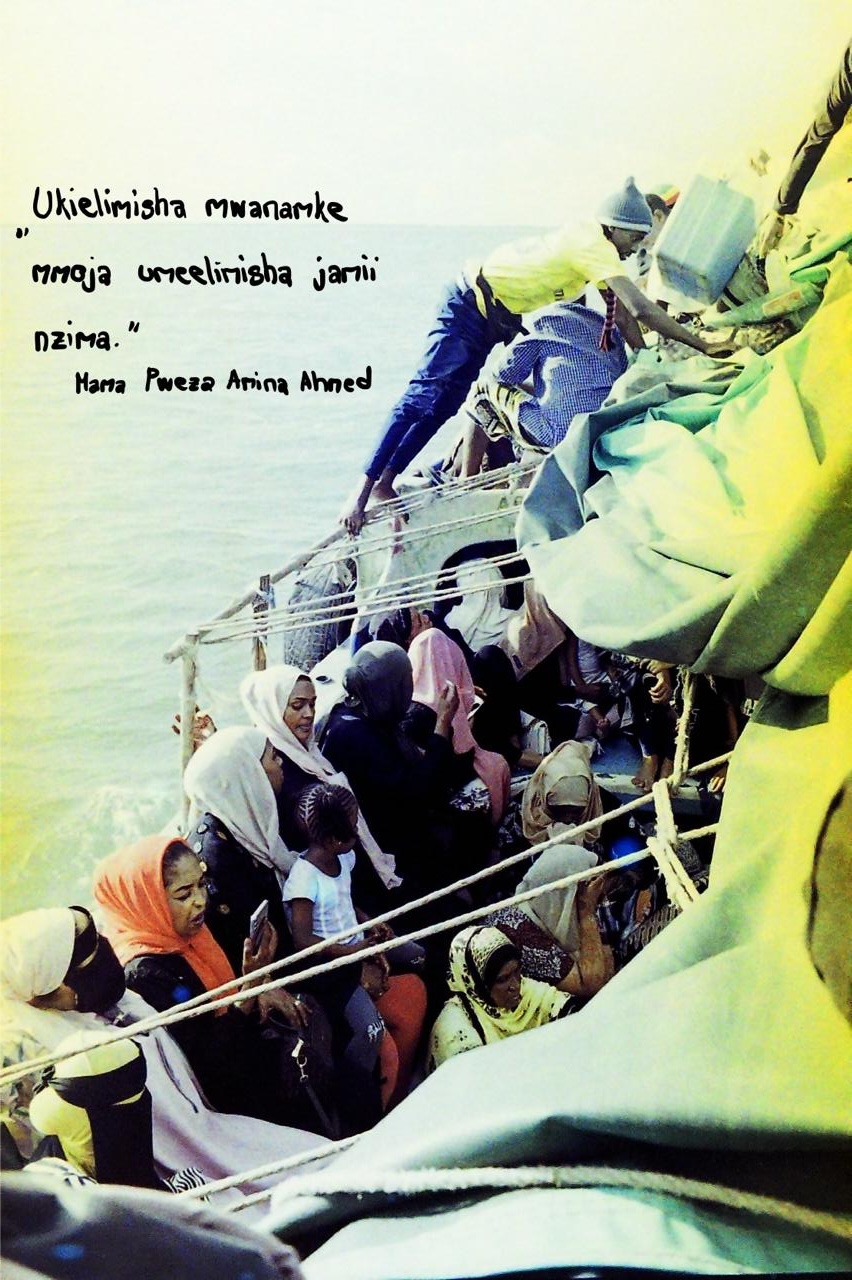
Through interviews, group discussions, participatory observations, and literature review, the study emphasizes the critical role of women in addressing climate-related challenges, such as droughts and floods, which disproportionately impact their lives and livelihoods.
The Mama na Bahari exhibition serves as a central element of the research, demonstrating the significant influence of women’s conservation efforts and their contributions to both the environment and society.
Findings suggest that environmental justice in Lamu cannot be achieved without gender justice, and this paper advocates for an integrated approach that combines both.
Sustainable Futures
Women in Lamu’s fishing industry face numerous challenges, particularly those exacerbated by climate change. These include not only environmental pressures like rising sea levels and unpredictable weather patterns but also socio-cultural restrictions that limit their mobility and participation in the industry.
The paper documents that women, who are often responsible for household duties, are more vulnerable during environmental crises. During floods, for example, women’s caregiving roles increase their exposure to danger, limiting their ability to seek safety. Moreover, health risks for women are amplified, as climate change contributes to increased incidences of stillbirths and diseases such as malaria and Zika. The intersection of these issues underscores the urgent need for gender-sensitive policies that recognize the unique vulnerabilities faced by women.
![]()
Local organizations, such as the Lamu Women Alliance, play a vital role in supporting women in overcoming these barriers. They advocate for what they call a “girl code” of solidarity to counter political and social challenges, including harassment and exclusion from decision-making processes. The need for comprehensive educational programs and greater support from both governmental and non-governmental organizations is also highlighted, particularly programs that incorporate indigenous knowledge and are sensitive to local cultural values.
The paper documents that women, who are often responsible for household duties, are more vulnerable during environmental crises. During floods, for example, women’s caregiving roles increase their exposure to danger, limiting their ability to seek safety. Moreover, health risks for women are amplified, as climate change contributes to increased incidences of stillbirths and diseases such as malaria and Zika. The intersection of these issues underscores the urgent need for gender-sensitive policies that recognize the unique vulnerabilities faced by women.
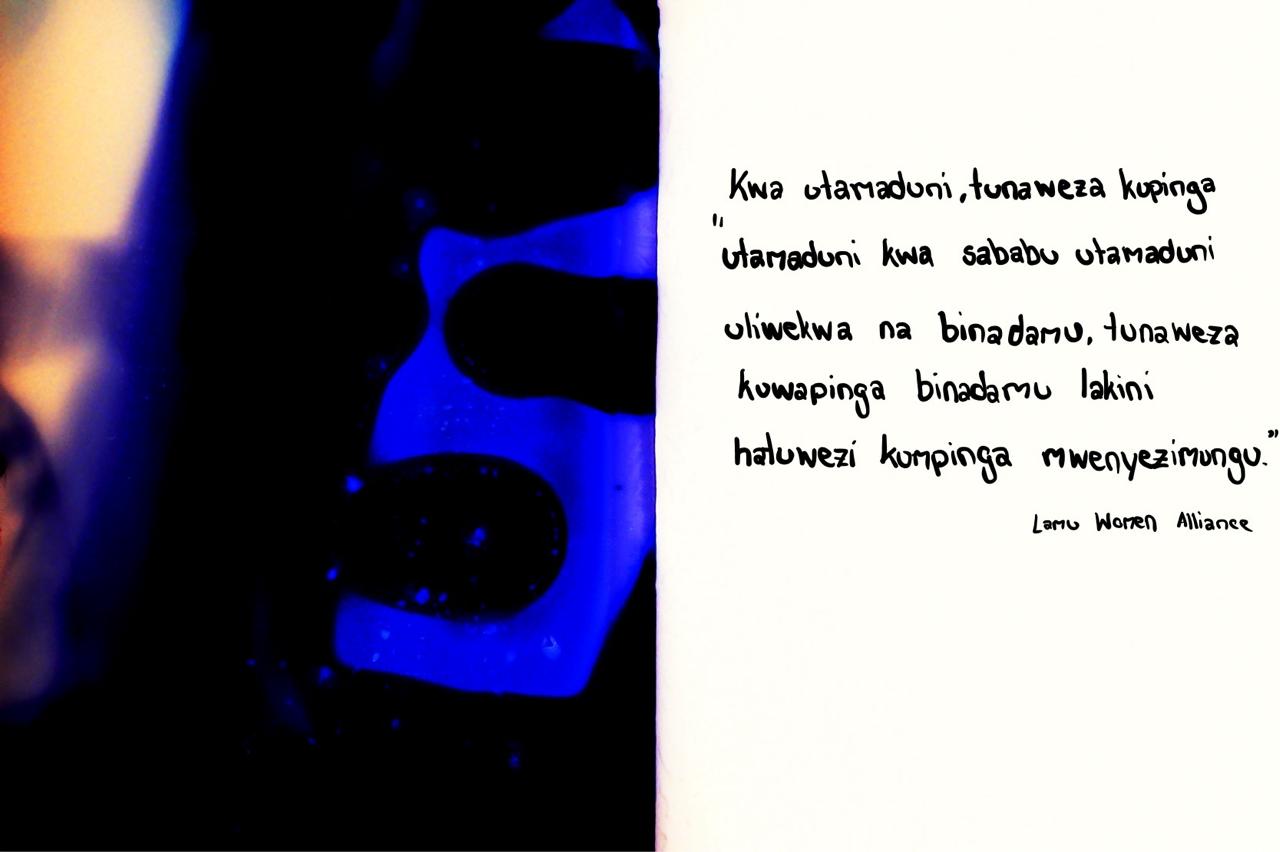
Local organizations, such as the Lamu Women Alliance, play a vital role in supporting women in overcoming these barriers. They advocate for what they call a “girl code” of solidarity to counter political and social challenges, including harassment and exclusion from decision-making processes. The need for comprehensive educational programs and greater support from both governmental and non-governmental organizations is also highlighted, particularly programs that incorporate indigenous knowledge and are sensitive to local cultural values.
The Faza Youth Action Group similarly addresses historical injustices, aiming to amplify marginalized voices and promote equal inclusion. The contributions of these groups emphasize that gender equality is essential for achieving environmental justice in Lamu, where socio-cultural and economic limitations have historically restricted women’s participation in sustainability efforts.
The research explores decolonial and Islamic feminist frameworks to understand how colonial legacies and religious principles influence environmental policies and gender norms in Lamu. Decolonial feminism critiques the enduring effects of colonialism, capitalism, and imperialism, challenging global structures that perpetuate inequality and exploitation. By valuing indigenous knowledge and amplifying marginalized voices, this perspective seeks to dismantle oppressive systems and promote self-determination for women in Lamu.
Islamic feminism, in turn, provides a framework for advancing gender justice within the context of Islamic principles, allowing women to engage in conservation and leadership roles without directly challenging religious beliefs.
For instance, the following statement from an interviewee of the Faza Youth Action Group reflects how women differentially challenge social and religious structures:
The research explores decolonial and Islamic feminist frameworks to understand how colonial legacies and religious principles influence environmental policies and gender norms in Lamu. Decolonial feminism critiques the enduring effects of colonialism, capitalism, and imperialism, challenging global structures that perpetuate inequality and exploitation. By valuing indigenous knowledge and amplifying marginalized voices, this perspective seeks to dismantle oppressive systems and promote self-determination for women in Lamu.
Islamic feminism, in turn, provides a framework for advancing gender justice within the context of Islamic principles, allowing women to engage in conservation and leadership roles without directly challenging religious beliefs.
For instance, the following statement from an interviewee of the Faza Youth Action Group reflects how women differentially challenge social and religious structures:
“We can fight the culture because that was made by humans. We can challenge humans, but we cannot challenge God.”
Initiatives
In addition to these feminist perspectives, this research illustrates how women-led initiatives are essential to sustainable development and social justice. Community projects such as coral reef restoration and octopus closures are examples of how environmental sustainability and economic independence are intertwined. Women in these initiatives challenge traditional gender roles, contributing both financially and socially to their communities while promoting ecological balance. Education is central to these efforts, fostering awareness of environmental issues and reinforcing women’s capacity to advocate for their rights.
The research finds that women’s involvement in Lamu is often defined within cultural contexts; as one member of the Lamu Women Alliance described, empowerment means “changing the way of life to the culture.” Similarly, the Faza Youth Action Group observed that the empowerment process has elevated women’s self-worth and expanded their roles within the community. Such culturally specific understandings of empowerment align with decolonial feminism’s goal to respect local values and resist external influences. The interconnections between gender, religion, and culture thus shape women’s leadership and environmental activism in complex ways.
The research finds that women’s involvement in Lamu is often defined within cultural contexts; as one member of the Lamu Women Alliance described, empowerment means “changing the way of life to the culture.” Similarly, the Faza Youth Action Group observed that the empowerment process has elevated women’s self-worth and expanded their roles within the community. Such culturally specific understandings of empowerment align with decolonial feminism’s goal to respect local values and resist external influences. The interconnections between gender, religion, and culture thus shape women’s leadership and environmental activism in complex ways.
The gendered division of labor and women’s disproportionate vulnerability to climate change highlight the importance of integrating gender perspectives into environmental justice. Community-led aspirations for environmental conservation align with economic activities, enabling women to develop strength and self-sufficiency. However, while women bear many responsibilities in their roles as primary caregivers, they often lack formal recognition and support. Local women’s knowledge, rooted in their cultural heritage and everyday experiences, is invaluable in promoting sustainable practices, as illustrated by their roles in conservation initiatives and traditional fishing practices.
The research emphasizes that sustainability and social justice must go hand in hand, particularly in the context of women’s contributions to environmental conservation in Lamu.
Participants frequently echoed the sentiment that “There is no climate justice without gender justice,” underscoring that sustainability efforts must be inclusive to be effective.
The Lamu Women Alliance advocates for integrating these principles into environmental policies to address gender-specific challenges and ensure women’s participation in leadership roles. The study illustrates that women’s voices are essential to sustainable development.
![]()
The research emphasizes that sustainability and social justice must go hand in hand, particularly in the context of women’s contributions to environmental conservation in Lamu.
Participants frequently echoed the sentiment that “There is no climate justice without gender justice,” underscoring that sustainability efforts must be inclusive to be effective.
The Lamu Women Alliance advocates for integrating these principles into environmental policies to address gender-specific challenges and ensure women’s participation in leadership roles. The study illustrates that women’s voices are essential to sustainable development.
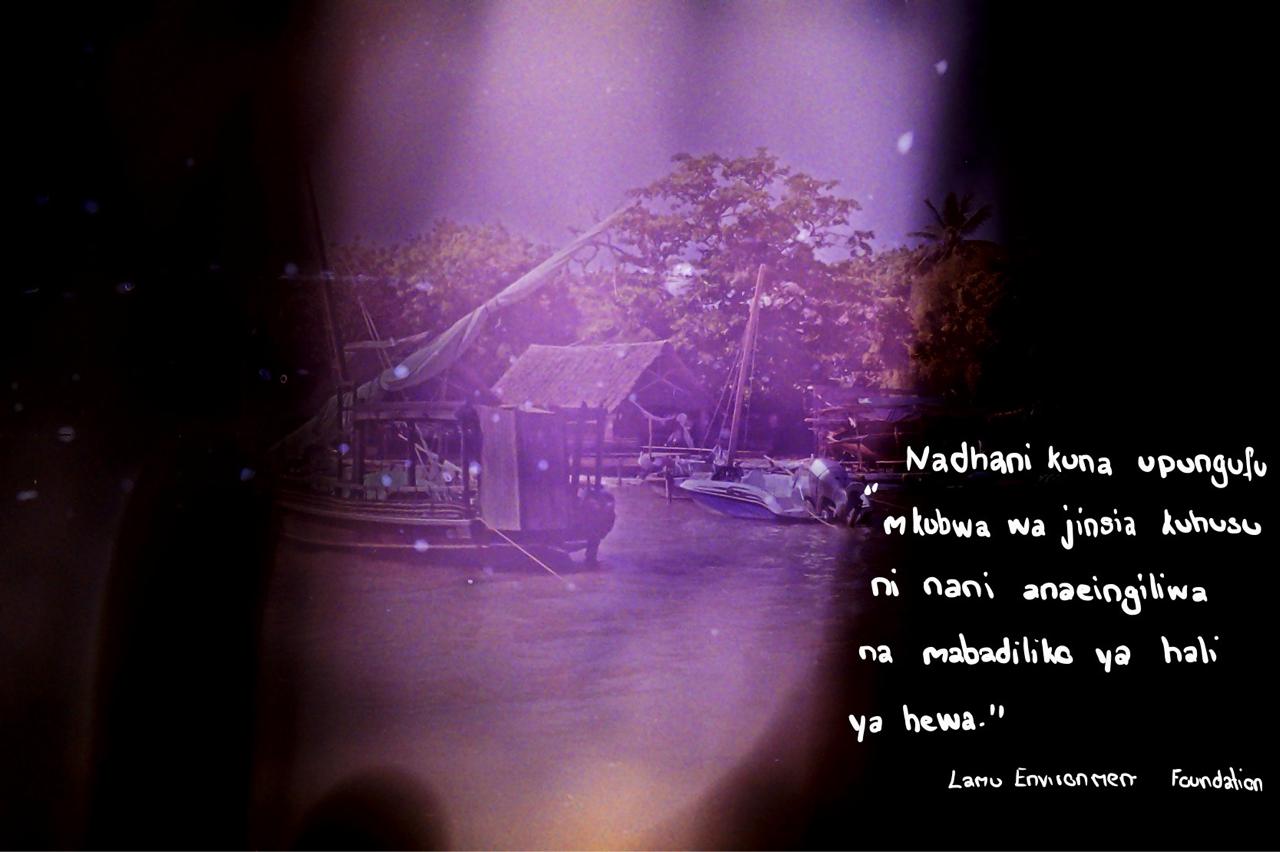
Conclusion
This research underscores the importance of integrating gender justice with environmental sustainability, advocating for policies that support women’s roles in conservation and address the socio-cultural barriers they face. Women’s leadership in Lamu demonstrates the transformative potential of decolonial and ecofeminist frameworks, which challenge global structures of inequality and foreground indigenous knowledge and local empowerment.
These findings illustrate that achieving environmental justice requires acknowledging and addressing gendered inequalities, recognizing women as key contributors to environmental preservation and community resilience.
Through their collective efforts, women in Lamu not only contribute to the local ecosystem but also foster a more equitable and sustainable future for their community.
This research offers valuable insights for policymakers, highlighting the need for inclusive approaches to environmental justice that respect cultural identities and promote gender equity within sustainability practices.

Mama na Bahari #2407
This research project examines the role of women in the fishing industry on Lamu Island, Kenya, where men typically dominate the field. Women primarily engage in fish processing and, in some cases, specialize in octopus fishing.
This project explores how these women navigate traditional boundaries, how cultural expectations shape their participation, and the socio-economic impacts of their contributions.
Their involvement challenges traditional gender norms within the culturally conservative, Muslim-majority society of Lamu.
This project explores how these women navigate traditional boundaries, how cultural expectations shape their participation, and the socio-economic impacts of their contributions.
Context and objectives
The fishing industry in Lamu is vital to the community. Fishing is traditionally seen as men’s work, particularly deep-sea fishing, which is physically demanding and requires specialized skills.
Women’s participation has been largely restricted to shore-based activities like fish processing, trading, and small-scale, near-shore fishing, such as octopus harvesting. This gendered division reflects deep-rooted cultural norms and Islamic teachings, which influence gender roles in Lamu.
Women’s participation has been largely restricted to shore-based activities like fish processing, trading, and small-scale, near-shore fishing, such as octopus harvesting. This gendered division reflects deep-rooted cultural norms and Islamic teachings, which influence gender roles in Lamu.
My central research question is: “What factors and societal values influence women’s participation in the fishing industry in Lamu?”
The study’s objectives include understanding the cultural and religious norms that shape women’s work, examining the challenges they face, and assessing their economic contributions to their communities.
![]()
Findings
The findings reveal that women in Lamu’s fishing industry operate within a framework heavily influenced by cultural and religious expectations. Women’s roles remain largely tied to household responsibilities and shore-based fish processing, a key activity known locally as Mama Karanga, which aligns with conservative Islamic perspectives that assign distinct responsibilities to each gender. Furthermore, in certain areas, especially octopus fishing, women fish independently, staying closer to shore and working among themselves. The economic importance of octopus fishing has led some community elders to accept women’s involvement due to the financial benefits it brings.
Women’s involvement in the fishing industry is influenced by economic necessity, particularly due to limited employment options on the island. The fishing industry however, faces significant economic and environmental challenges. Inadequate infrastructure, like the lack of cold storage facilities, complicates fish preservation and affects women’s incomes.
Environmental issues, including the LAPSSET project, have also impacted fish availability, with pollution and changing marine conditions reducing catches and creating additional economic pressures on women.
Empowerment, as perceived by these women, is nuanced and community-oriented. Through initiatives led by organizations, women receive training and access to resources.
![]()
Women’s involvement in the fishing industry is influenced by economic necessity, particularly due to limited employment options on the island. The fishing industry however, faces significant economic and environmental challenges. Inadequate infrastructure, like the lack of cold storage facilities, complicates fish preservation and affects women’s incomes.
Environmental issues, including the LAPSSET project, have also impacted fish availability, with pollution and changing marine conditions reducing catches and creating additional economic pressures on women.
Empowerment, as perceived by these women, is nuanced and community-oriented. Through initiatives led by organizations, women receive training and access to resources.
Many interviewees expressed a sense of agency from their work, noting that financial independence helps them support their families and contribute to the community.
Empowerment is evident in the women’s ability to make household decisions and engage in collective action to address community issues, such as marine conservation.
Despite the influence of Western perspectives on empowerment, the local women’s concept is rooted in Nego-feminism (Nnaemeka 2004), a form of African feminism that emphasizes negotiation and harmony rather than confrontation. For example, many women continue to balance their fishing activities with traditional roles, such as caring for children and managing household duties, in line with conservative expectations. Women like Mama Pweza, an octopus fisherwoman, embody this approach by working in groups, thus respecting cultural norms about gender-appropriate activities while still advancing economically.
At the same time however, women’s increasing visibility and agency create tensions within the community, particularly regarding traditional expectations.
Some men and elders disapprove of women’s involvement in fishing, fearing it disrupts social structures.
It is said:
“wazee wanasema wanawake wamekuwa kichwa ngumu”, which means “Elders say women have become stubborn”.
However, the acceptance of economically beneficial activities, like octopus fishing, shows that traditional norms in Lamu can be flexible when financial incentives are evident.
Conclusion
This study illustrates how women in Lamu balance economic empowerment with traditional roles, navigating a complex social landscape shaped by cultural norms and economic necessity.
They leverage resources and opportunities within the framework of Islamic gender norms, achieving a form of empowerment that aligns with African feminist ideals of collective welfare.
Although women face significant challenges, they contribute substantially to their families and communities by adapting traditional roles to new economic contexts.
This research underscores the need for culturally sensitive empowerment initiatives that respect local customs while providing meaningful support. Ultimately, the women of Lamu are redefining empowerment on their terms, blending traditional values with economic strengths in ways that contribute positively to their community’s socio-economic and environmental sustainability.
